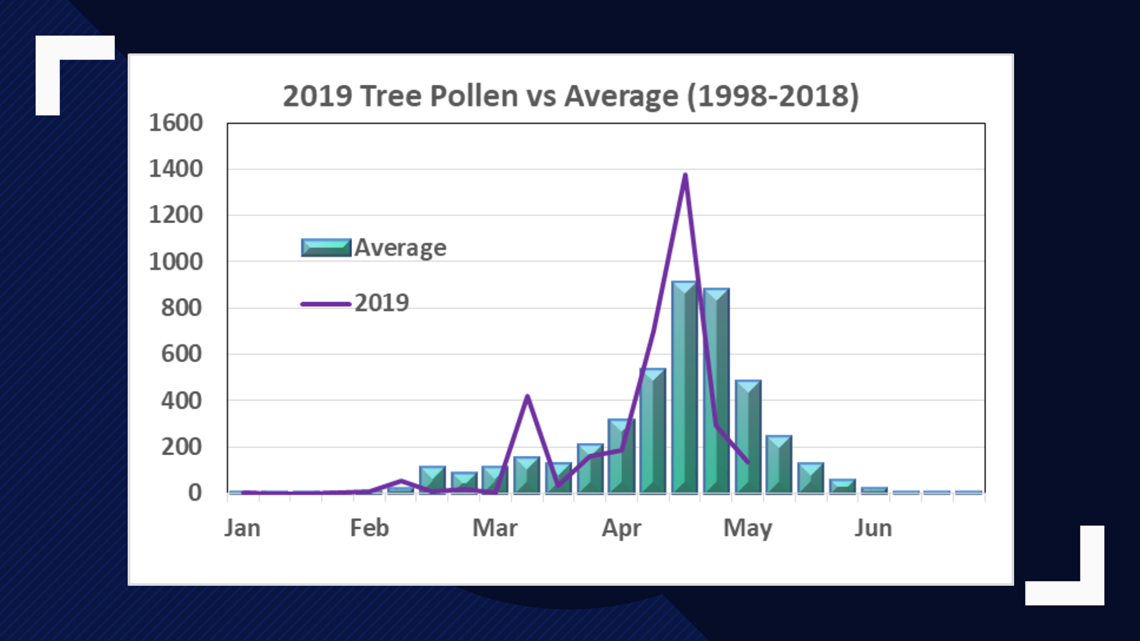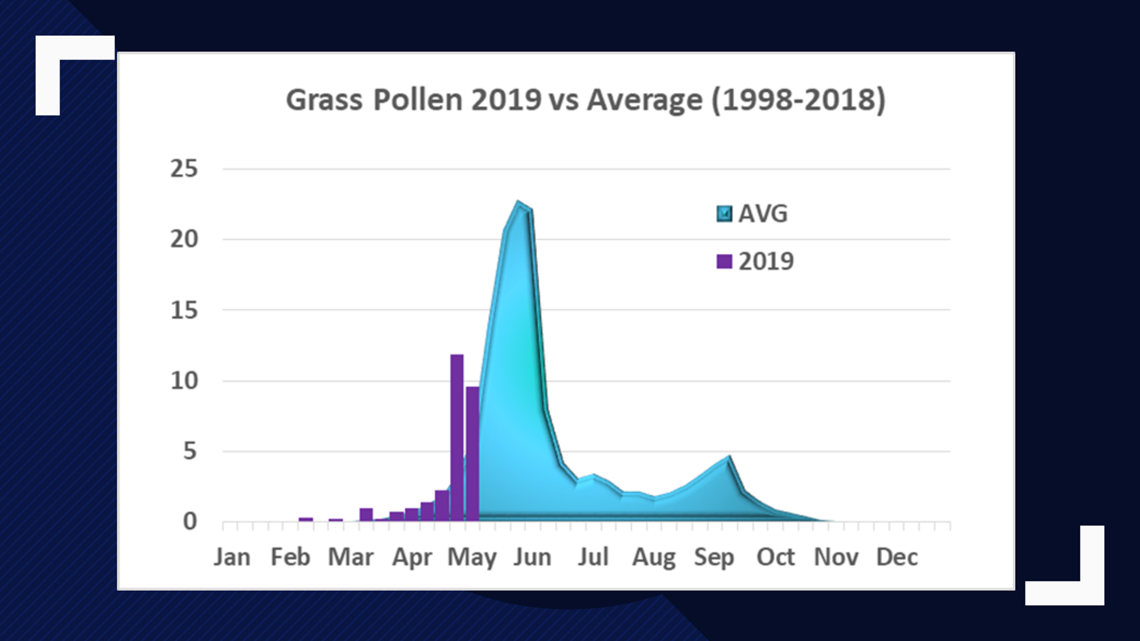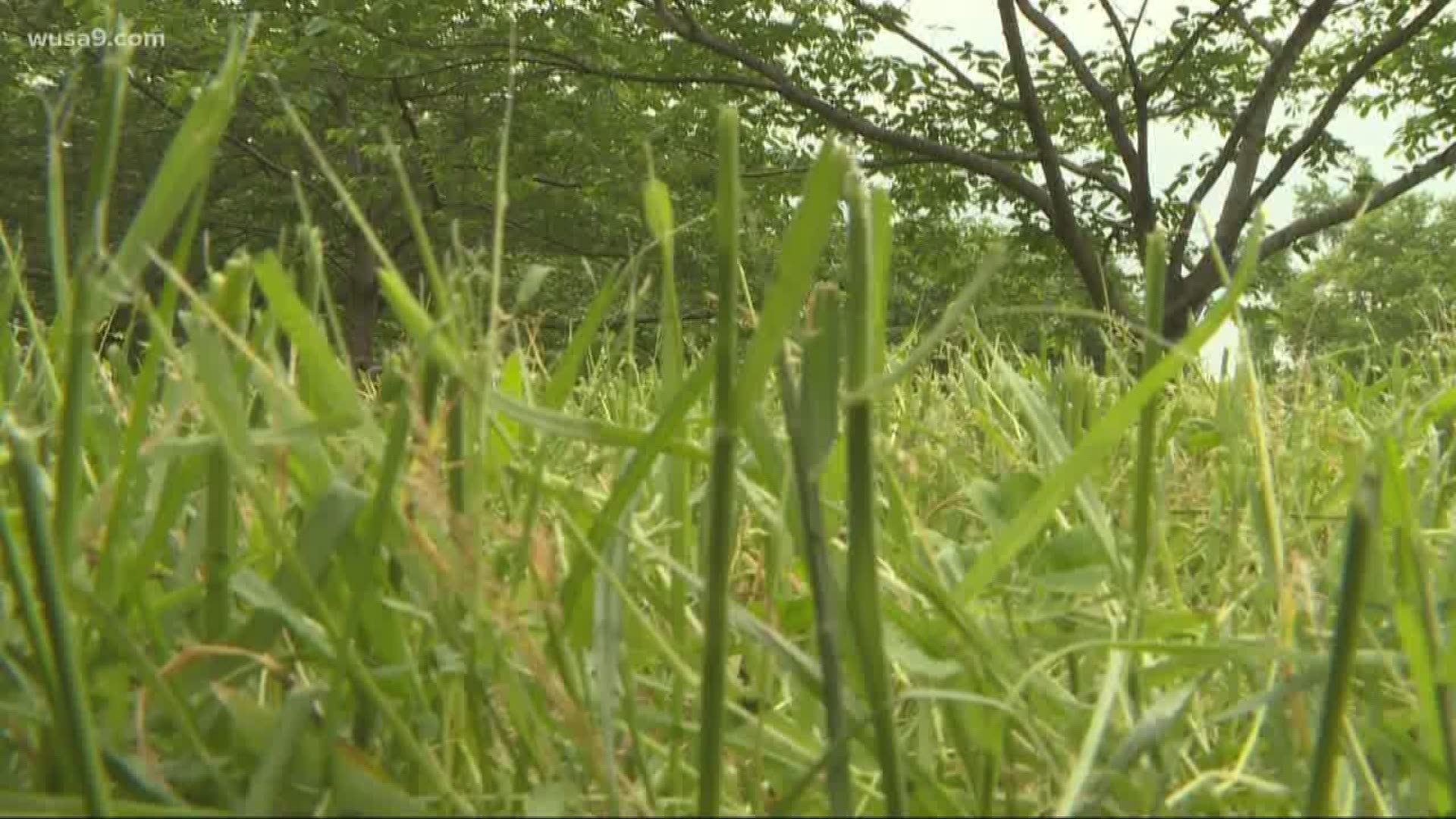WASHINGTON -- It's the time of year when seemingly everyone in D.C. is sneezing and rubbing their eyes.
Especially for newcomers, allergies seem to be worse in D.C. than in other areas of the country. But one allergist said that might actually be true.
Jenni Yoon works at the Allergy and Asthma Center in Silver Spring, Md. She said she can't be sure why allergies seem to be worse in the district. But Yoon said she's seen a steady increase in the severity of symptoms in the past few years -- with 2019 being the worst.
"I would say by a lot of experts and patients, they’re saying it’s the worst spring yet, and we don’t know exactly why, but it just seems to be getting worse and worse every year," Yoon said. "It’s just been super busy in our practice, just phones ringing off the hook, patients trying to get in, a lot of kids missing school, parents taking off work just with the severity of their symptoms."
According to the U.S. Army Centralized Allergen Extract Lab, the third week in April saw a spike in tree pollen count that surpassed the average by about 30 percent.


The lab said grass pollen typically peaks the third week in May, so there's the potential to see a similar spike coming soon.


Quest Diagnostics compared 30 of the most populous cities across the country to determine the worst places to live for allergies, and D.C. ranked in the top five.
Yoon, however, said anytime people move to any new city, their immune system has to adjust.
“We think that maybe there’s some change in your immune system where you move to a different climate, a different area, and your immune system just goes haywire, and you develop sensitivity," Yoon said.
A different study conducted by the Asthma and Allergy Foundation of America compared 100 cities in terms of quality of life with allergies, and ranked D.C. 81 out of 100 -- better than average.
Symptoms may not feel "better-than-average" for the average person in D.C. though, so Yoon has some tips to protect against the pollen.
Some of those include showering and changing clothes immediately after being outside and wearing a mask outdoors if need be.
What do you think? Do your allergies seem worse in D.C.?
Take this poll and let us know.


